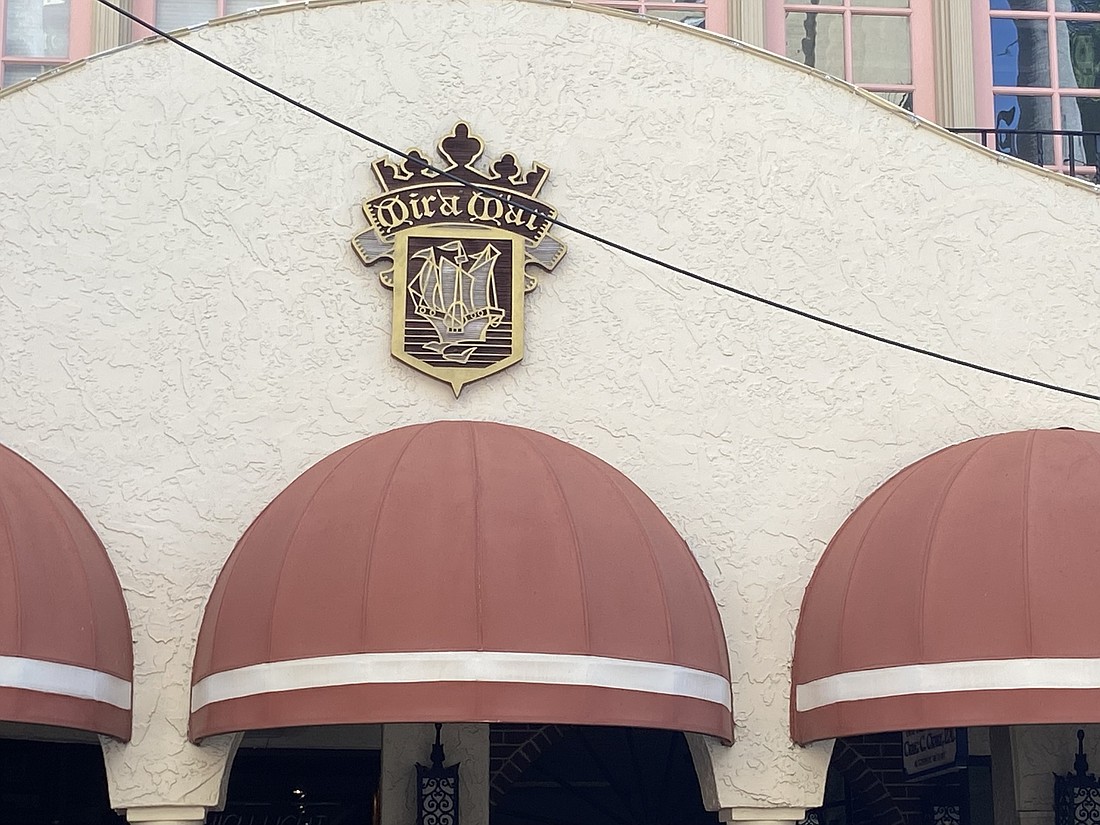- April 10, 2025
-
-
Loading

Loading

Sarasota developer Seaward Development has backed out of an agreement to buy the structurally questionable Mira Mar building after failing to gain permission to demolish it — a quest the building’s current owner will now undertake.
The building, on South Palm Avenue in downtown Sarasota, has been the center of a dispute for weeks now between those who are trying to preserve a part of the city’s history, the developer and owner who believe it’s time to move on, and the building’s tenants whose livelihood could be at stake if forced to move.
Hanging over all these arguments are questions about the building’s safety. The Mira Mar, actually two buildings, has been under nearly constant monitoring for nearly two months by building engineers and city inspectors who are keeping an eye on it to make sure it doesn’t become so unsafe that it’s uninhabitable.
The latest development? In an Aug. 22 letter to tenants provided to the Business Observer, the property’s management company says “the discovery of some substantial deficiencies with the building’s structure make occupancy of the building unlikely for the long-term.”
Seaward, which had intended to buy the property from Mark Kauffman and is a tenant, had planned to bring the building down and to rebuild it, in the original style, with condominiums and retail.
But, despite arguing, and showing that the building was in disrepair and having shoring installed to protect the structural integrity of the property, a request to tear down the Mira Mar was turned down by the Sarasota’s Historic Preservation Board in June.
Seaward, as recently as July, was considering an appeal to the Sarasota City Commission but never followed through.
News of the deal’s demise comes just two weeks after rumors surfaced an agreement to sell the property had fallen apart.
On Aug. 9, a Seaward spokesperson said in a text that speculation the company was backing out “is not true.” “Deal is not dead, but they have canceled their appeal,” the spokesperson wrote.
But 14 days later, on Aug. 23, Searward —who believing the building is unsafe has moved all of its staff and its equipment out — confirmed the sale was off.
“At this point we are focused on other projects and opportunities in the community,” Seaward President Matthew Leake says in a statement.
As for whether the company will stay at the Mira Mar, Leake says, “We’re exploring options at this time and currently remain a tenant at Mira Mar.”
But just because the sale is off does not mean the saga is over. At best, it has just reached intermission.
In the Aug. 22 letter, the property management firm tells tenants that the current owner, Mark Kauffman, “intends to pick up where Seaward left off in applying for a demo permit.
“This way, if the absolute safety of the tenants so dictates, or should the landlord decide to sell to another developer to redevelop the site (or take on that opportunity themselves), they are in a position to do so.”
In explaining why its pursuing this track, the company, Red Property Management, makes an argument similar to the one Seaward made. And that’s that the building seen today is not really historic, that it was rebuilt in the 1980s with outdated engineering methods and has an infrastructure in desperate need of repair.
That damage, according to both Kauffman and Seaward, who quote their engineers, includes a wood frame that is badly damaged, including drastically undersized foundations, corroded structural wood wall studs, extensive insect damage and wood rot.
The building has been assessed by Sarasota County at $2 million but needs $22 million to repair, a project that could take three years.
As for whether tenants and their customers are safe, the property management firm writes that “our engineers continue to advise us that the building is currently safe for occupancy; but simply recommend ongoing monitoring.”
“With that in mind, the landlord will continue to keep the building running in a safe manner (monitored closely by our professional structural engineers), to the extent it is reasonably fiscally prudent.”
That paragraph in the letter is followed by the one saying “substantial deficiencies with the building’s structure make occupancy of the building unlikely for the long-term.”
One other point in the letter is that lease renewals will now include a six-month termination clause.
“This will give the landlord flexibility if they decide to close or demolish the building, or if landlord sells the property and the buyer so decides to do so,” the letter says. “Of course, if you should elect not to renew your lease, we understand and will work with you to that end.”
This article originally published in the Business Observer, a sister publication.